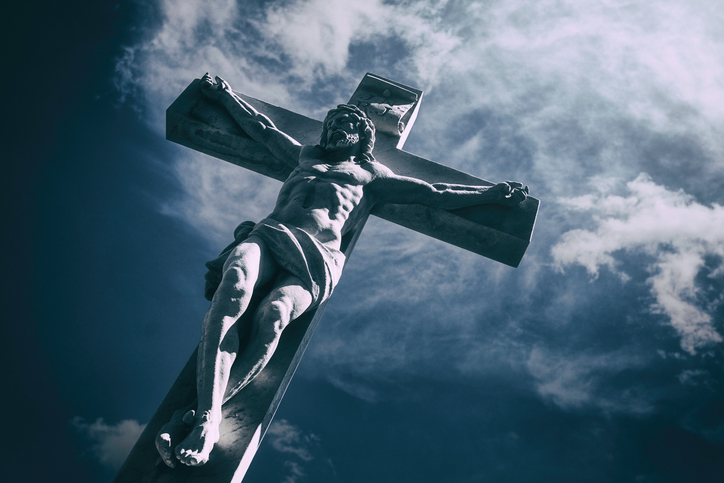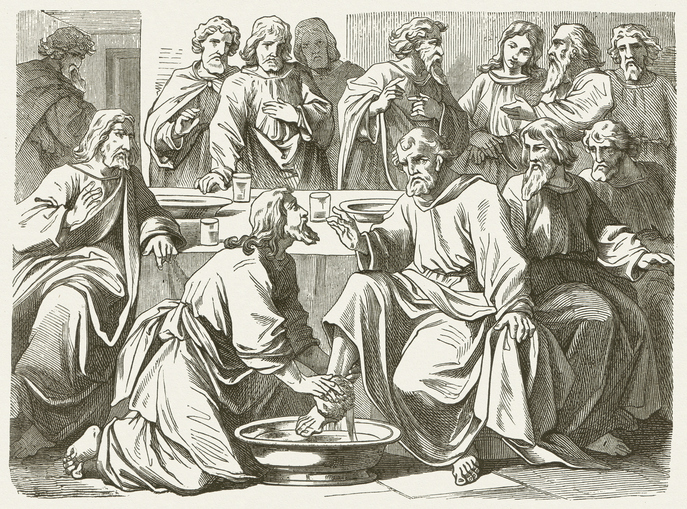“…God chose the foolish of the world to shame the wise; God chose the weak of the world to shame the strong,…” 1 Cor 1:27
The readings today are very timely to help address the challenges within our church. Edward Hays’ writings, “Holy Fools and Mad Hatters” came to mind in particular. In his book, Fr. Hays gives many insights as to what it means to be a holy fool. He speaks about early Christian mystics (most notably St. Francis of Assisi) who humbly went about seeking change in the Church and the world’s view of the poor and outcast.
At the time, many thought Francis was a fool for Christ. There were many challenges and corruption in the Church. Francis wholeheartedly and faithfully loved the Church. He went about seeking to reform the Church by loving it more. He preached the Gospels and loving all as Christ would love. He did not ridicule or cast stones at the Church hierarchy, yet loved them more (as he too was a sinner, he could not cast a stone). He prayed for reforms in the Church leaders and abusers of power. He sacrificed and repented for the conversion of the souls of the unjust; for change in the status quo by living through the example of Jesus Christ in the Gospels.
As a professed member of the Secular Franciscan order, I was deeply heartened by my national executive council (representing over 6,000 Secular Franciscans) response to the current scandal in the Church.
Here is the bulk of their message:
“It saddens all of us that a small minority of men who committed to serve the Church betrayed the promises they made to serve and used their positions of being an authority figure to aid predatory behavior; truly we have wolves in sheep’s clothing. (Mt 7:15) If it were only a case of a few parish priests, the trust of Church leaders might be more easily re-established; but when it is demonstrated that our chief shepherds, the bishops, were involved in secrecy, cover-ups and payouts, the trust, respect and moral authority of the Church as an institution suffers great damage. We must all face the truth and make no excuse for those who are guilty of these crimes against the living stones of the Church, the mystical body of Christ; those who have been unfaithful spouses to the Church as the Bride of Christ!
St John Chrysostom, a fourth-century bishop, described pastors as the “salt of the earth.”
(Mt 5:13) He said of pastors, “If others lose their savor, then your ministry will help them regain it. But if you yourselves suffer that loss, you will drag others down with you.” Sisters and brothers, we have witnessed many being dragged down by those shepherds who have lost their savor as the salt of the earth.
Some demons can only be cast out through prayer and fasting. (Mark 9:29) This is our call to action! Our Lord asked St. Francis to rebuild the Church which was falling into ruin. Are we called to do anything less as followers of Francis? Francis lived his vocation authentically as a living example of Gospel Life. We must do the same. Only by living an authentic Gospel life will our light shine and the Church be rebuilt.
We must also stand with our brothers and sisters who have and are serving the Church as good and faithful servants. These men and women who are committed to their call are now called to be suffering servants. They are guilty by association with the Church institution that has betrayed their trust. How difficult it will be for them to preach the Gospel as representatives of a Church that has lost its moral authority in the public square and the pew. We must stand by those faithful servants and help them continue to look after the well-being of others.
We stand in support of the victims and in favor of holding those responsible for these crimes accountable for their actions. We pray for healing, forgiveness, peace, reconciliation and a Church that will be rebuilt and with God’s grace, and the movement of Holy Spirit, one day, will once again be a beacon of light, hope, and refuge. Let us go forth and witness to the light of Christ and rebuild the Church so that it may once again be full of grace and truth.
The National Executive Council of the Secular Franciscan Order USA (OFS-USA) August 26, 2018″
We can use our prayers, sacrifices, and voices to be part of the solution, similar to the two servants with the five and two talents in today’s gospel reading, or we can choose to do nothing and bury our heads in the sand as the servant buried his master’s talents.
Pray with me:
Lord Jesus, the Church, Your Bride, is suffering from a profound confusion. Your people feel betrayed, confused, and are weary of scandal. But You are the same yesterday, today, and forever! We turn to You, the Rock on which we stand in expectation. Shed on us Your light. Give us Your peace. Show us the way that you desire for each of us. St. Michael, friend of the friends of God, protect and defend us. St. Joseph, protector of the universal Church, pray for us. Mary, Mother of the Church, intercede for us!
What are you prepared to do for your church? What can you sacrifice today to make way for grace? Here are some extra words for thought from Fr. Lankeit in Phoenix, his homily from 8/26/18.

Beth Price is a Secular Franciscan (OFS) and spiritual director who has worked in several parish ministry roles during the last 20 years. She is a proud mother of 3 adult children. Beth currently works at Diocesan. You can contact her at bprice@diocesan.com















